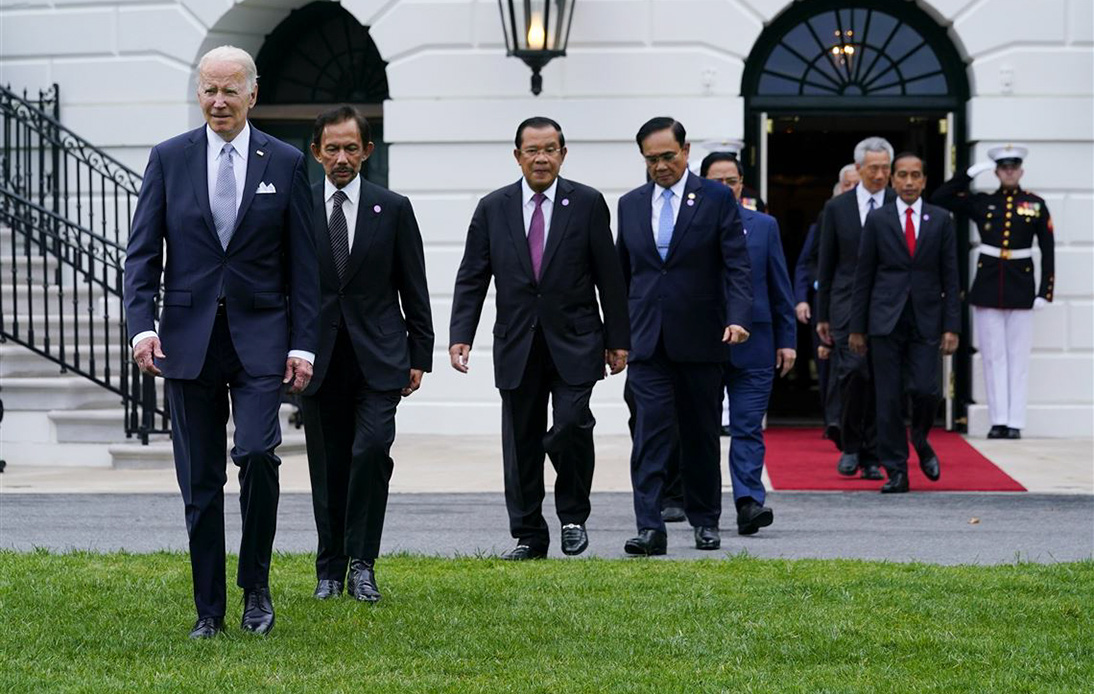
During a summit with Southeast Asian leaders, US President Joe Biden pledged to spend $150 million on the region’s infrastructure, security, Covid-19 fight and other investments to counter Chinese influence.
Biden made the commitment after opening the two-day summit with the Association of Southeast Asian Nations (ASEAN) at the White House in Washington. Representatives from Thailand, Malaysia, Laos, Cambodia, Singapore, Indonesia and Vietnam joined the US commander in chief.
The US financial commitment includes a $60 million investment in maritime security aimed at deploying Coast Guard personnel to improve law enforcement on seas. A US Coast Guard vessel will be dispatched to help local fleets combat what Washington and ASEAN leaders have described as China’s illegal fishing.
The White House also explained that $15 million would be used as health funds for enhanced surveillance and disease testing in Southeast Asia, expecting to improve the region’s detection capacity of airborne diseases such as Covid-19 and tuberculosis.
The US also wants to help Southeast Asia’s countries develop and implement regulations on the digital economy and artificial intelligence. Moreover, the Biden administration hopes to send US National Park Service employees to ASEAN nations to promote sustainable tourism and combat deforestation.
According to a senior White House official, President Biden continues to work on other initiatives. They comprise an Indo-Pacific Economic Framework (IPEF) to reinforce their commitment to the region, as well as the “Build Back Better World” (B3W) infrastructure investment, designed as an alternative to Beijing’s Belt and Road Initiative (BRI).
Thursday’s summit was the first time ASEAN leaders had met as a group in Washington.
Both Southeast Asian countries and the US government have expressed concerns about China and its claim to sovereignty over vast swathes of the South China Sea. Vietnam, the Philippines, Brunei and Malaysia have claimed parts.
However, analysts say ASEAN leaders remain cautious and do not firmly side with Washington as they have significant economic ties with China.
Southeast Asia’s countries have also expressed concern over the US government’s actions, saying monetary incentives from the Biden administration have been limited and delayed.




















